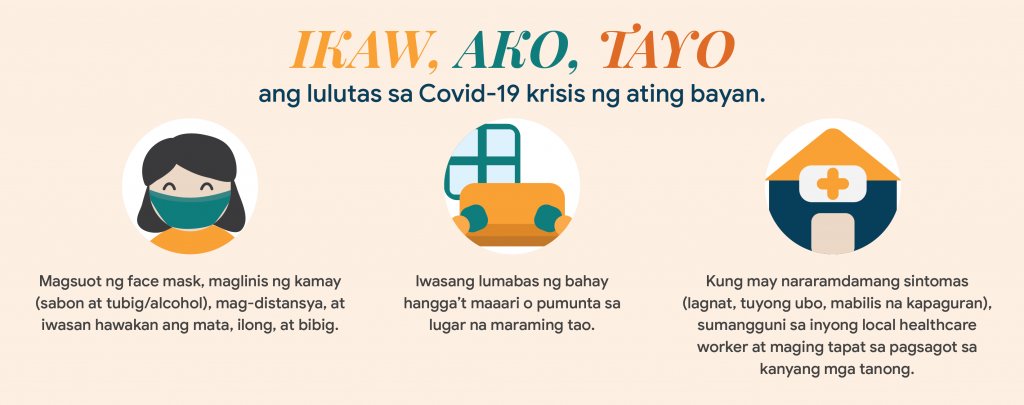
The continuous global upsurge of Corona Virus Disease-19 (COVID-19) and its variants has led government institutions like DA-PhilRice to adopt stringent protocols to prevent its spread.
Executive Director John C. de Leon issued guidelines under the Enhanced Community Quarantine (ECQ), Modified ECQ (MECQ), and General CQ (GCQ) in memorandums issued in 2020.
Highlights of the guidelines focus on the use of the main entrance gate, DA-PhilRice Employees Multi-purpose Cooperative (PEMCO) operations, meetings and group activities, official travels, workplace sanitation, visitors and other stakeholders, and construction activities.
The NO MASK, NO ENTRY policy applies to everyone entering the Institute. They will be thermally scanned and vehicles entering the main gate shall pass thru a disinfecting rug.
Although staff are not allowed to travel especially in infected areas except those related to the Rice Competitiveness Enhancement Fund (RCEF), they are required to undergo 14-21 days quarantine at the fully sanitized DA-PhilRice Hostel after their travels.
Staff coming from barangays with reported Covid cases will no longer undergo quarantine in the facility upon presentation of a certification as non persons under monitoring (PUM) or persons under investigation (PUI) during the entire quarantine period.
“For safety precautions, only those reporting to work who were previously PUMs, PUIs, and Covid positive cases shall present Quarantine Clearance and medical certificate and shall undergo quarantine for seven days,” said Ms. Hazel M. Orge, Integrated Management Standards and Services Office (IMSSO) Head.
To address concerns for staff members returning to the CES after the holidays, stricter guidelines were implemented. Staff reporting back to work but were stranded in provinces, including newly hired personnel, will automatically be quarantined in the hostel for 7 days for those with medical certificate and 14 days without medical certificates from their local Rural Health Unit.
A 7-day work from home arrangement is resorted to for returning staff based on the assessment of officials, safety officers, and members of their respective division/unit.
Results of face-to-face meetings are emailed, while Facebook live, Zoom, Webex, virtual tours, recording for delayed streaming/sharing, and other communication platforms are instead used for mass gatherings such as field days, seminars, and conferences.
Visitors and guests delivering rice R&D services are allowed following Department of Health protocols, as are farmers and seed growers with quarantine and food lane passes, while prior approval for appointments are required for students and clients inquiring about investigatory project and testing services.
Only suppliers/service providers with approved appointments and with no COVID symptoms shall be accommodated, as are technicians and service engineers conducting check and repair of lab equipment are allowed to enter the Institute, while contractors should follow the Inter-Agency Task Force construction project guidelines on ECQ, MECQ or GCQ, Physical Plant Division in coordination with the IMSSO.
Orge reiterated the safety protocols for staff experiencing or have experienced COVID-19 virus symptoms for the past 7 days to undergo swab testing or strict home isolation for 14 days and submit quarantine clearance from concerned authority upon reporting back to work.
At the same time, a staff exposed to a COVID-19 positive based upon the evaluation of Rural Health Unit, Barangay Health Unit, and IMSSO is also barred from reporting to work. A quarantine clearance issued by concerned authority is also required upon reporting to work. Also, not more than 10% capacity is allowed physically in meeting rooms and staff must practice health safety protocols such as physical distancing, wearing of face masks and face shield, and washing or disinfecting hands.




